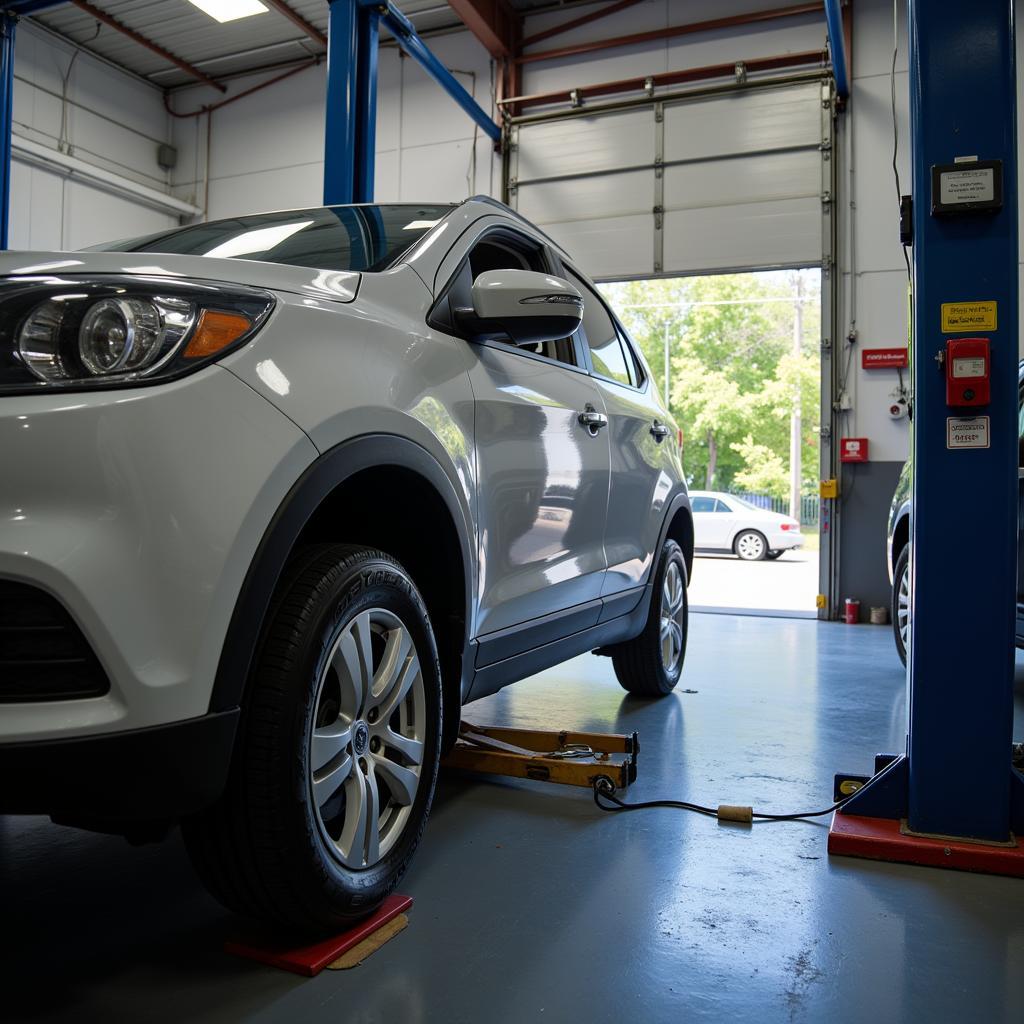Do You Need to Service Your Car by Law?
Owning a car comes with responsibilities, and one of the most important is regular servicing. But is car servicing a legal requirement, or is it just good practice? Let’s delve into the legalities and explore why regular car maintenance is crucial regardless of the law.
Car Servicing: Legal Requirement or Best Practice?
The answer to whether you’re legally obligated to service your car isn’t a simple yes or no. Unlike roadworthiness inspections, which are mandatory in many places, regular car servicing isn’t typically stipulated by law in most countries.
However, there’s a catch. While you might not find a specific law demanding you service your car every six months or after a certain mileage, neglecting your car’s maintenance can have legal ramifications.
The Legal Gray Zone: How Neglecting Car Maintenance Can Get You in Trouble
While regular servicing may not be a legal requirement in itself, driving an unsafe vehicle certainly is against the law. Here’s where it gets tricky: if your car hasn’t been serviced in a long time and this leads to a mechanical failure that causes an accident, you could be held liable.
Let’s say your brakes fail because you’ve been putting off that brake fluid change. If this leads to an accident, the lack of maintenance, and therefore your negligence, could be used against you in court.
Expert Insight:
“It’s not about ticking a legal box with car servicing,” says automotive expert James O’Connell, “It’s about ensuring your vehicle is safe for you and everyone else on the road. Neglecting maintenance can turn your car into a liability, both legally and safety-wise.”
Why Regular Car Servicing is Essential
Legal gray areas aside, there are compelling reasons to make regular car servicing a priority:
- Safety First: Regular checks and maintenance help ensure your car’s brakes, tires, steering, and other vital components are in top condition, keeping you and other road users safe.
- Preventing Costly Repairs: Addressing minor issues early can prevent them from escalating into major, expensive repairs down the line.
- Extending Your Car’s Lifespan: Just like our bodies, cars need regular care to stay healthy. Routine servicing can significantly extend your car’s lifespan and ensure it runs smoothly for years to come.
- Maintaining Your Car’s Value: A well-maintained car with a comprehensive service history will have a higher resale value than a neglected one.
- Warranty Compliance: Some manufacturers require you to keep up with scheduled servicing to maintain your car’s warranty.
How Often Should You Service Your Car?
Most manufacturers recommend servicing your car every 6 months or 6,000-7,500 miles, whichever comes first. However, it’s best to consult your owner’s manual for your specific car’s recommended service schedule.
You can find more information on what type of service your car might need in this article.
Do You Have to Service Your Car at a Dealership?
Many car owners believe they must return to their dealership for servicing to maintain their warranty. However, this is a common misconception. As long as you use a reputable mechanic who uses quality parts and follows the manufacturer’s service schedule, your warranty remains valid.
 Car Service at Independent Garage
Car Service at Independent Garage
If you’re unsure about whether you need to get your car serviced by a dealership, we have a comprehensive article discussing this topic here.
Car Servicing: A Smart Investment, Not an Expense
While car servicing does require an upfront cost, it’s crucial to view it as an investment rather than an expense. Regular maintenance saves you money in the long run by:
- Avoiding major repairs
- Improving fuel efficiency
- Extending the life of your car
Expert Insight:
“Think of car servicing like going to the doctor for regular checkups,” advises Sarah Chen, a certified mechanic. “It’s far better to catch and address small issues early than to deal with major health problems – or in this case, car problems – down the line.”
Conclusion
So, while there might not be a law explicitly stating you must service your car, the implications of neglecting its maintenance can certainly have legal consequences. Beyond that, regular car servicing is essential for ensuring your safety, preventing costly repairs, and extending the life of your vehicle. It’s a smart investment that offers peace of mind and keeps you rolling smoothly.
If you need further guidance on car servicing, you can download our step-by-step guide here.
FAQs
1. What does a basic car service include?
A basic car service typically includes an oil change, oil filter replacement, and a general inspection of your car’s vital components, including brakes, tires, lights, and fluids.
2. How much does a car service cost?
The cost of a car service varies depending on your car’s make and model, the service schedule, and your location. However, you can expect to pay anywhere from $100 to $300 for a basic service.
3. Can I service my own car?
While you can perform some basic maintenance tasks yourself, such as checking your tire pressure or refilling your windshield washer fluid, it’s generally recommended to have your car serviced by a qualified mechanic, especially for more complex procedures.
4. What happens if I don’t service my car?
Neglecting car servicing can lead to reduced fuel efficiency, costly repairs, voiding your warranty, and most importantly, compromising your safety and that of other road users.
5. How do I find a reputable mechanic?
You can ask for recommendations from friends, family, or online reviews. Look for mechanics certified by reputable organizations, such as the National Institute for Automotive Service Excellence (ASE).
For those wondering about servicing electric vehicles, our article on what service EV cars need provides a comprehensive overview.
Need help finding the right car service for your needs?
Contact us via WhatsApp: +1(641)206-8880, or Email: [email protected]. Our dedicated customer support team is available 24/7 to assist you.

